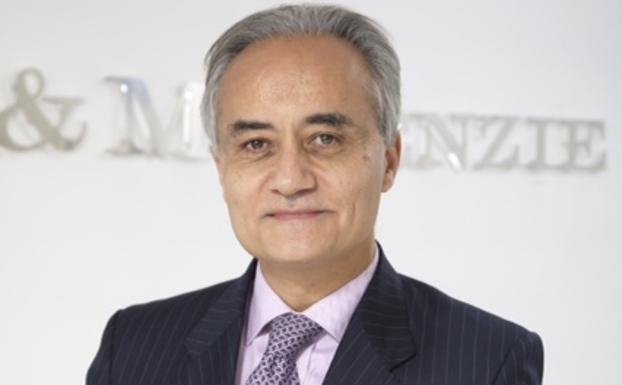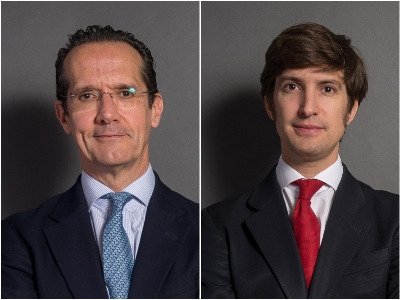COVID-19, breeding ground for White-Collar Crime

The pandemic has not only weakened the economy and threatened livelihoods. It has also encouraged some to take advantage of new vulnerabilities to commit economic and financial crimes such as fraud and money laundering. Iberian Lawyer talks to Jesús Santos, partner head of Baker McKenzie’s Criminal Litigation area, about how the COVID-19 has affected the criminal map of White-Collar Crimes.

Jesus, can we say that the pandemic has caused an increase in white-collar crime and that, on the other hand, due to the need for liquidity, picaresque or other factors, has diversified its typology? If so, through what criminal formulas has the “offender” profile changed and diversified? What types of crime would the definition of “white-collar crime” encompass today?
Indeed, the crime map has been affected as a result of the weakening of the economy we are experiencing due to the COVID-19 pandemic. In general terms, crime levels increase in periods of crisis and recession, which is particularly relevant to economic and financial crimes, such as fraud and money laundering, or other more common conducts in the corporate sphere such as crimes of unfair administration or misappropriation. This is due not only to the lack of liquidity and to the situations of need faced by certain sectors of the population, but also, indeed, to the increase in the picaresque nature of the criminals and the exploitation of an increase in the weakness of the victim, especially in cybercrime, where the means necessary for its execution are extremely accessible.
In this sense, the exceptional situation that we are experiencing in our country as a result of the state of alarm has led to the proliferation and increase in the use of computer systems to carry out all kinds of activities (for example, there has been a significant increase in Internet sales). This has favoured the commission of cyber-crimes, most of which are of a financial or economic nature.
As for the authors of these crimes, with the passage of time and the appearance of new technologies, it should be noted that their conception as those people in the business world who commit a crime in the framework of their professional activity has been losing weight. It is necessary to modernise this conception to bring it into line with current standards. As an example, a large percentage of the frauds that occur have their origin in computer fraud, since this type of commission can reach a greater number of victims.
However, even if the specific techniques for the commission of “white-collar crimes” have evolved over the years, the legislator has introduced new types of criminal offences in order to update the criminal coverage to the appearance of new harmful conducts. Furthermore, other offences are included within existing types, such as fraud or money laundering. Therefore, the concept of “white-collar crime” includes those crimes in the commission of which there is a financial component with the aim of obtaining a profit or economic advantage.
This may also have had a role in Europol’s creation of the European Financial and Economic Crime Centre (EFECC). What were, in your opinion, the determining factors in its creation?
Probably the most important factor in the creation of this centre is the free movement of capital, which is the result of economic cooperation between European Union countries through the Common Market. In this respect, the effective prosecution of many crimes or criminal networks requires not only the effective seizure of the means or products necessary for the commission of the crimes but also of the capital obtained with its commission which facilitates the commission of new offences.
Similarly, another factor that should not be underestimated is the serious damage that these crimes can cause to the financial and economic interests of the European Union. It is therefore clear that crimes such as financial fraud and money laundering seriously damage the economies of the Member States by evading control of the countries’ tax systems.
For all these reasons, it seems reasonable to believe that the creation of this centre responds to a need for greater cooperation between the Member States given the cross-border nature of these crimes and the economic damage they entail.
You have participated in the defence of Deloitte, one of the entities involved in the 2011 Bankia IPO, which has concluded – at least for the time being – with the acquittal of the defendants. It has been an example of “choral defence” with a successful outcome. How do you coordinate the advisory work in this type of procedure with multiple defendants and, therefore, defence lawyers?
Although a lawyer is undoubtedly and exclusively owed to his client, and must always follow the strategy that is most beneficial to him, it is essential that there is coordination between the lawyers on both sides of the case and that the lines of defence are as aligned as possible. This way, positions are reinforced, and judges are offered a clearer and more credible knowledge of the facts they have to prosecute.
The Bankia case is an example of “unity is strength”, and that synergies between lawyers can help to satisfy the interests of their clients and obtain the results they expect.
What role do auditors play in preventing or avoiding financial fraud in companies? For fraud to occur, it is not necessary for the fraud to be “conscious”, so to speak.
Today auditors play a major role in the world of economic Criminal Law. The continuous and thorough review of a company’s financial statements by an external and independent auditor not only allows for the early detection of possible fraud and distortions that may be occurring but can also serve as proof of a company’s commitment to the implementation of a culture of compliance and respect for the Law within its organisation.
There is a very interesting document that reflects on the theory of the “legal good” in relation to white-collar crime, as a “moral theory” that “underlies and crosses the whole set of economic-business crimes” and that, contrary to what happens in other types of crimes in which the moral position clearly coincides with the legal one (homicides, nuclear crimes, etc.) “in white-collar crimes it can sometimes be obscured”, we quote.
The document is entitled “The essence (moral) of unjust in white-collar crime”, by José R. Agustina, and in it the author approaches and translates into Spanish the original document of Lying, Cheating, and Stealing -A Moral Theory of White Collar Crime (2006), by Stuart P. GREEN, professor at Rutgers University School of Law. We would like to ask you, in your opinion, what role does the moral question play in this type of crime?
There has been much discussion about the relationship between morality and Law (and more specifically, Criminal Law). I believe that in a democratic state Criminal Law protects the assets that society itself considers essential. In this sense, legal goods are the expression of a minimum collective morality.
Certainly, in some criminal offences, it is easier to see this relationship between moral values and legal values than in others, where intermediate legal values serving final values are protected. It is clear, for example, that traffic safety serves life, and that when security is protected against certain behaviours that endanger the life and physical integrity of people, it is these assets that are ultimately to be protected.
In economic and business crimes, the same moral-goods relationship exists. The purpose of this classification is to preserve a certain basic social morality. The problem is that this is a world in which intermediate or functional goods are often protected. When the stock market, competition or the Treasury are protected, is it is people’s assets, their basic welfare and the basic benefits of the State towards its citizens what is ultimately preserved.
There has also been talk about certain corporate crimes occurring in circumstances of necessity or pressure that make them less morally reprehensible. That can happen, but it can also happen in any other crime, and for that reason, there are mitigation or exoneration circumstances in the Spanish Criminal Code for cases where the conduct is less reprehensible.
We are also talking about other types of “scams”, those related to the whole range of government aid. Do you have any information you can tell us about this?
Indeed, at Baker McKenzie, we deal with all kinds of economic and financial crimes, including subsidy fraud, as well as related crimes such as tax and social security fraud. These types of frauds are committed not only nationally but also internationally, for example, with aid received from European Union funds.
In relation to these crimes, it is interesting to note the increase in government aid being granted by the public authorities to both companies and individuals in order to alleviate the economic consequences of the health crisis we are experiencing as a result of the COVID-19 pandemic. Therefore, the increase of government aid combined with the weakening of the economic situation of society in general, the possibilities of committing these crimes are also increasing proportionally.
What kind of issues do you have at Baker McKenzie Spain that could be framed within this area? What common characteristics do they have, if any?
At Baker McKenzie, we handle all types of cases from both a prosecution and a defence perspective, although our practice concerns mainly offences that are related to economic and corporate Criminal Law.
Thus, we advise individuals and companies, both in a Litigation phase and pre-Litigation (prior to the initiation of Criminal proceedings). It is common to advise companies when there is a suspicion or certainty that an employee has committed a crime within the company. These crimes can be committed either to the detriment of the company (such as cases of unfair administration, appropriation of company funds by an employee, etc.) or to its benefit., which may lead to the criminal liability of the legal entity, a matter in which we have extensive experience, as it is a speciality to which we have been intensely devoted in the last decade (since before the introduction of legal entities criminal liability in the Spanish legal system at the end of 2010).
The typology of these crimes is very varied, although all of them have as a common characteristic the importance of their economic-financial component. Furthermore, they tend to stand out for their high complexity, their high volume (we often speak of macro-causes with a multitude of procedural parts) and the numerous investigative proceedings (including International Rogatory Commissions) which are necessary to clarify the facts. With the associated difficulty that, on many occasions, these crimes are committed through organised groups or through complex corporate structures, even of an international nature.
When researching this particular area of Law, we see that there are not too many senior specialists in Spain. I suppose you all know each other, in fact. What kind of specific training does a lawyer in your field require and what kind of soft skills are appropriate? Among these, are there any that you consider indispensable?
First of all, an in-depth technical and legal knowledge is indispensable given the complexity that the procedures we deal with usually entail, since it is also an area related to delicate aspects such as people’s freedom or the survival of their businesses. In this sense, it is essential to improve and learn continuously, in order to be updated in an area of constant evolution. On the other hand, lawyers specialised in Criminal Law need to be prepared to work in a collaborative environment within multidisciplinary procedures, where the ability to adapt and work in a team are necessary skills for day-to-day work.
Finally, one of the qualities I consider indispensable to become a good Criminal lawyer is having the right skills for the emotional management of the relationship with our clients. Suffering with the sufferer and accompanying our clients in this path during the long journey of Criminal proceedings.
In such a unique and specialised practice, we imagine that mentoring is a very important part of the new professionals training. Is this work carried out from Baker McKenzie Spain?
Indeed, all of our lawyers have access to legal training that allows them to expand their technical knowledge, thus achieving not only a greater degree of knowledge but also its permanent update in accordance with legislative developments. This training is compulsory for those lawyers who join our firm after completing their university studies, from the Master’s degree in Access to the Legal Profession, together with sessions related to skills such as dealing with clients, working methodology or legal English.
These training courses are offered at all levels, as the company has a large number of resources, both documentary and video, online classes, etc. We also help and contribute to our professionals carrying out specialisation courses, both nationally and internationally, so that we can count on the best professionals on the market.
by Desiré Vidal
To read the article in full please download issue N.99 here












